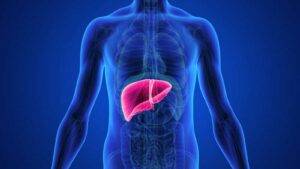Welcome to a journey that takes us deep into the intricate world of type 2 diabetes, a chronic condition that affects millions of adults worldwide. In this blog post, we will delve into the development and medical diagnosis of type 2 diabetes, exploring its underlying mechanisms, risk factors, potential complications, prevalence, and impact on global health. Additionally, we will explore the potential benefits of various supplements, including Juniper Berries, Gymnema Sylvestre, Licorice Root, Manganese, Biotin, and Chromium, as adjunct therapies for managing Type 2 diabetes.
Unraveling the Mystery of Type 2 Diabetes: Understanding, Combatting, and Supplementing
Just a little heads up: some of the links on this site may be affiliate links, which means if you make a purchase through them, we might get a little kickback. But don’t worry, it won’t cost you a cent extra! Think of it as the universe secretly thanking us for helping you find a great deal. Your support keeps the good vibes flowing.
Part 1: The Development and Diagnosis of Type 2 Diabetes
To understand type 2 diabetes, we first need to grasp the underlying mechanisms. Unlike Type 1 diabetes, which is an autoimmune disorder, Type 2 diabetes occurs due to an imbalance between insulin production and utilization in the body. This condition is closely tied to lifestyle factors, including poor diet, sedentary behavior, and obesity. When the body becomes resistant to insulin or fails to produce enough insulin to regulate blood sugar levels effectively, type 2 diabetes ensues.
Various risk factors can contribute to the development of type 2 diabetes, such as age, family history, ethnic background, obesity, and lack of physical activity. Understanding these risk factors can help individuals take proactive steps to mitigate their likelihood of developing the condition.
Detecting Type 2 diabetes is primarily done through blood tests, such as fasting plasma glucose (FPG) or oral glucose tolerance tests (OGTT). These tests, conducted by healthcare professionals, allow for an accurate diagnosis and subsequent management of the condition.
Part 2: Prevalence and Impact on Global Health
The prevalence of Type 2 diabetes has reached alarming proportions worldwide. According to the International Diabetes Federation (IDF), approximately 463 million adults were living with diabetes in 2019, with type 2 diabetes accounting for about 90% of all cases. Furthermore, projections suggest that by 2045, this number will rise to 700 million individuals affected by diabetes.
This global health crisis presents numerous challenges, including increased healthcare costs, diminished quality of life, and a higher risk of developing complications such as cardiovascular disease, nerve damage, and kidney problems. Raising awareness of type 2 diabetes and promoting preventive measures are crucial to curb its growth and reduce its impact on individuals and communities.
Part 3: Exploring Supplement Potential for Managing Type 2 Diabetes
While it’s important to note that supplementation does not replace traditional medical treatments for type 2 diabetes, certain supplements have shown promise as adjunct therapies. Let’s take a closer look at a few noteworthy supplements and their potential benefits:
1. Juniper Berries: These flavorful berries possess antioxidant properties and may aid in reducing blood sugar levels. However, further research is needed to explore their full efficacy.
2. Gymnema Sylvestre: This herb has a long history of use in Ayurvedic medicine and may help regulate blood sugar levels by improving insulin sensitivity. Clinical studies have shown promising results, but more research is required to determine optimal dosages and long-term effects.
3. Licorice Root: Known for its natural sweetness, licorice root contains compounds that may assist in managing blood sugar levels. However, caution is advised, as excessive consumption can lead to electrolyte imbalances.
4. Manganese: As a vital trace mineral involved in glucose metabolism, manganese supplementation may help enhance insulin sensitivity. However, be mindful of balancing intake, as excessive amounts may have adverse effects.
5. Biotin: This B-vitamin plays a role in carbohydrate and lipid metabolism and has shown potential in improving glycemic control in individuals with Type 2 diabetes. Always consult healthcare professionals for guidance on dosage and usage.
6. Chromium: Acting as a cofactor in insulin regulation, chromium supplementation may enhance insulin sensitivity and glucose metabolism. Clinical trials have yielded varied results, highlighting the need for further investigation.
Conclusion:
Type 2 diabetes is a complex condition with far-reaching implications on individuals and global health. Understanding its underlying mechanisms, risk factors, and potential complications empowers individuals to make informed decisions regarding prevention and management. While certain supplements like Juniper Berries, Gymnema Sylvestre, Licorice Root, Manganese, Biotin, and Chromium show promise as adjunct therapies, it is crucial to approach these options with caution and under the guidance of healthcare professionals.
By staying informed, making lifestyle changes, and seeking appropriate medical care, individuals can manage type 2 diabetes effectively and lead fulfilling lives. Remember, knowledge is power when it comes to safeguarding your health.
**Sources**
1. International Diabetes Federation (IDF) Diabetes Atlas. (https://www.diabetesatlas.org/)
2. National Institute of Diabetes and Digestive and Kidney Diseases. (https://www.niddk.nih.gov/)
3. American Diabetes Association (ADA). (https://www.diabetes.org/)
4. Mayo Clinic: Type 2 Diabetes. (https://www.mayoclinic.org/diseases-conditions/type-2-diabetes)
5. WebMD: Supplements for Diabetes. (https://www.webmd.com/diabetes/supplement-guide-digestive-disorders)
6. Diabetes Care Journal: Effect of chromium on glucose and lipid profiles in patients with Type 2 diabetes; a meta-analysis review of randomized trials. (https://care.diabetesjournals.org/content/33/6/1318)
7. Journal of Research on Ayurveda and Siddha: Effect of Gymnema sylvestre R. Br. leaf extract on experimental diabetes mellitus. (https://www.ncbi.nlm.nih.gov/pmc/articles/PMC2659653/)
Understanding Type 2 Diabetes: Exploring Potential Supplements and Managing Tips
Type 2 diabetes, insulin resistance, blood sugar, chronic condition, lifestyle factors, risk factors, complications, global health, supplementation, juniper berries, gymnema sylvestre, licorice root, manganese, biotin, chromium, blood sugar management, insulin sensitivity, glucose metabolism, holistic approach

Just a little heads up: some of the links on this site may be affiliate links, which means if you make a purchase through them, we might get a little kickback. But don’t worry, it won’t cost you a cent extra! Think of it as the universe secretly thanking us for helping you find a great deal. Your support keeps the good vibes flowing.

































































































